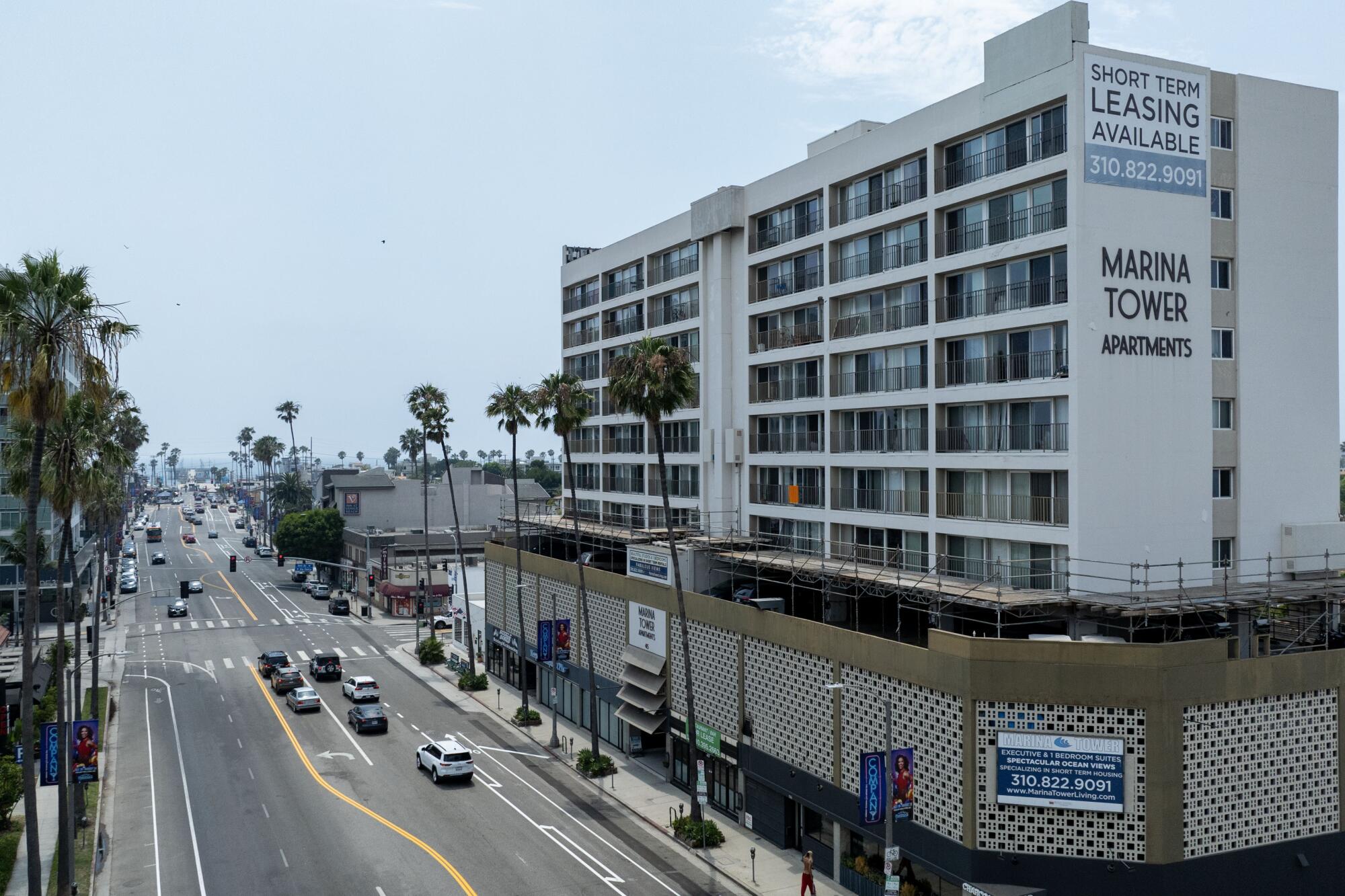
By all accounts, Vladyslav Yurov was living the rags-to-riches American dream.
When he was 20 years old, the Ukrainian national came to the U.S. on a student exchange program and decided to stay, he said in a since-deleted Instagram video. He worked multiple low-wage jobs in Ohio, learned English and tried to make ends meet. He moved to Los Angeles and spent all his savings setting up his first rental unit for Airbnb, only to lose his lease two months later because, he said in the video, the arrangement wasnât legal.
He didnât give up. By age 29, Yurov was a millionaire, operating 28 âfully automatedâ short-term rentals on Airbnb and other hosting platforms, making more than $200,000 every month.
He even found a way to monetize his business model, running an online Airbnb âHosting Academyâ where clients paid to be taught his techniques. In an Instagram post, he wrote about how he helped students âmake thousands with properties they donât even own.â
Four weeks later, all of that came crashing down.
On June 20, Los Angeles City Atty. Hydee Feldstein Sotoâs office filed a lawsuit against Yurov, his companies Skysun and Hugs & Smile, and two business partners, alleging that they made more than $4 million by leasing properties from Los Angeles landlords on a long-term basis, then renting out the units as illegal short-term lodgings. The lawsuit alleges that they operated more than 30 illegal rental properties across L.A. since 2020, including at least 10 that are subject to the cityâs rent stabilization ordinance.
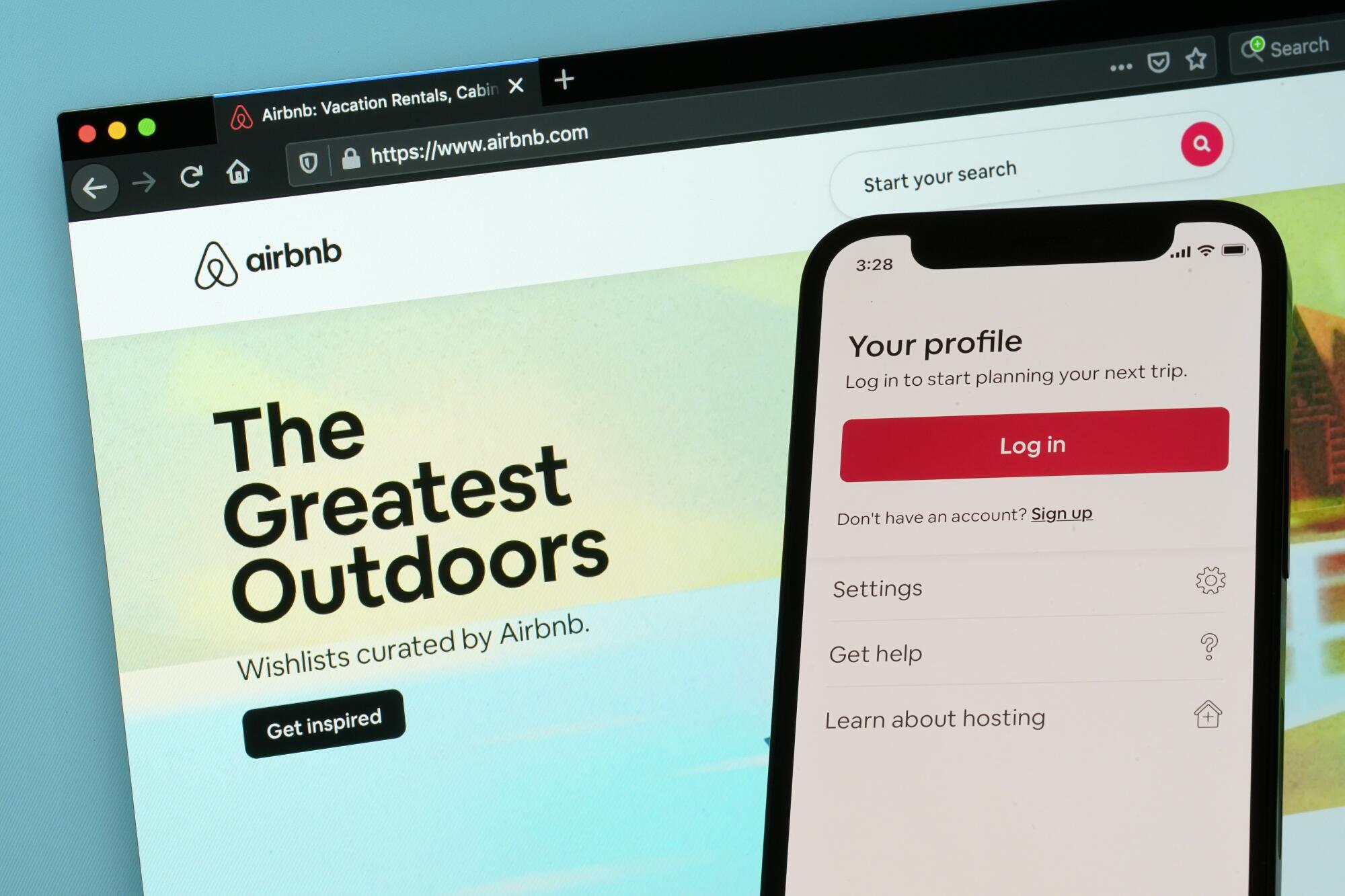
What made the rentals illegal, according to the city attorney? Among other things, the complaint alleges that Yurov and partners violated the cityâs short-term rental ordinance â a measure designed to stop landlords from converting long-term housing into more lucrative short-term units â by renting out homes that they did not live in and that were subject in some cases to rent control.
The alleged scheme also hurt customers who booked listings from his firm, according to Airbnb posts reviewed by The Times. Clients said they paid for rentals in specific neighborhoods only to be pushed at the last minute into other areas they hadnât chosen to stay in.
The lawsuit seeks up to $15 million in damages from Yurov and the other defendants.

Subscribers get exclusive access to this story
Weâre offering L.A. Times subscribers special access to our best journalism. Thank you for your support.
Explore more Subscriber Exclusive content.
After the city attorneyâs office announced the lawsuit in a July 10 news release, Yurovâs Instagram page was taken down. His TikTok channel, however, was up as of Aug. 21.
The alleged scheme was simple: The trio would claim that their properties were outside of L.A., such as in Glendale or West Hollywood, to circumvent the cityâs ordinance and make their properties appear to be in more desirable locations, according to the lawsuit, which listed at least 14 rentals with fraudulent addresses.
Under this âbait-and-switchâ method, they would allegedly disclose the real location of the rental unit only after the guest had booked it, claiming that theyâd used a fake address because of âa licensing problem in Los Angeles,â the complaint alleges.
Under the cityâs Home-Sharing Ordinance, which was adopted in 2018, hosts of short-term rentals must register with the cityâs Planning Department and are allowed to rent out only their primary residence, where they live for more than six months out of the year.
Hosts can list only one unit at a time as a short-term rental and are barred from listing units that are rent-controlled, are covered by affordable housing covenants or have been removed from the long-term market because of the Ellis Act. The Ellis Act allows owners of rent-controlled properties to evict tenants if they take the units off the rental market (for example, by converting them to condominiums).
The ban also extends to accessory dwelling units built in Los Angeles after 2016.
Yurovâs company Skysun filed a preemptive lawsuit against the city attorneyâs office on May 1, seeking a declaratory judgment and denying that it had violated the cityâs Home-Sharing Ordinance, according to court records. That case is still pending.
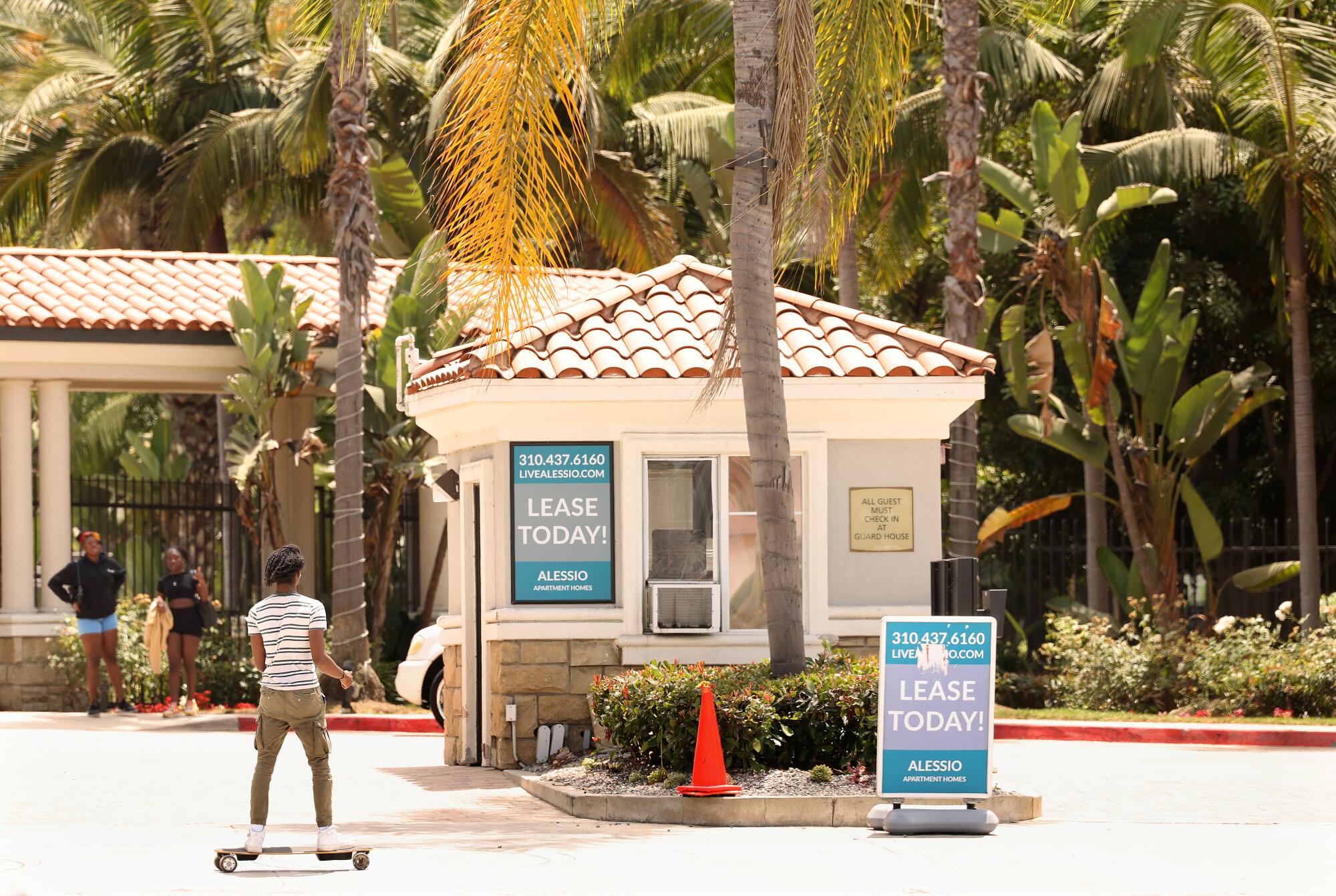
Yurov, his attorney, and his associates didnât respond to requests to comment. Yurov filed a formal denial on July 31 in response to the city attorneyâs allegations, stating that he has a right to continue operating his business, that he didnât displace any people or contribute to the housing crisis and that an injunction isnât necessary because heâs voluntarily willing to cease his business.
Randy Renick of Better Neighbors LA, an advocacy group that pushes for tougher regulations on short-term rentals, said his organization has sent complaints to the city in the past about Yurovâs listings. But the tactics Yurov is accused of using arenât unique to his organization. Better Neighbors found in a March 2024 analysis that Airbnb hosts across Los Angeles had at least 180 active short-term rental listings that misrepresented their locations in a âbait and switch.â
âThere is still tremendous work to be done,â Renick said.

Although the one-bedroom studio apartment was advertised on Airbnb as a âSunset studio in Marina Del Rey,â the investigator from the city attorneyâs office got an email from the host revealing the âexact addressâ shortly after he booked a one-night stay in February.
The confirmation email from Airbnb claimed the address was 4201 Via Marina in Marina Del Rey, but the host told him it was actually 415 Washington Boulevard â the location of a rent-stabilized building in Venice called Marina Tower.
Half an hour later, the host named âKyryloâ messaged him again with check-in instructions, including Wi-Fi and parking locations. Guests were to go to a utility pole in the alley behind Marina Tower and find a key inside one of the lockboxes. Any questions were to be directed to the âproperty manager,â named Anastasia.
But it was the hostâs last instruction that caught the investigatorâs attention: âDo not knock on the leasing office. They can cause you problems.â
Thatâs because the Marina Tower apartment was not supposed to be used for short-term rentals under the conditions of the lease, according to the lawsuit. And since the unit was rent-controlled, the cityâs ordinance also prohibited it from being used as a short-term rental, the city alleged in the lawsuit.
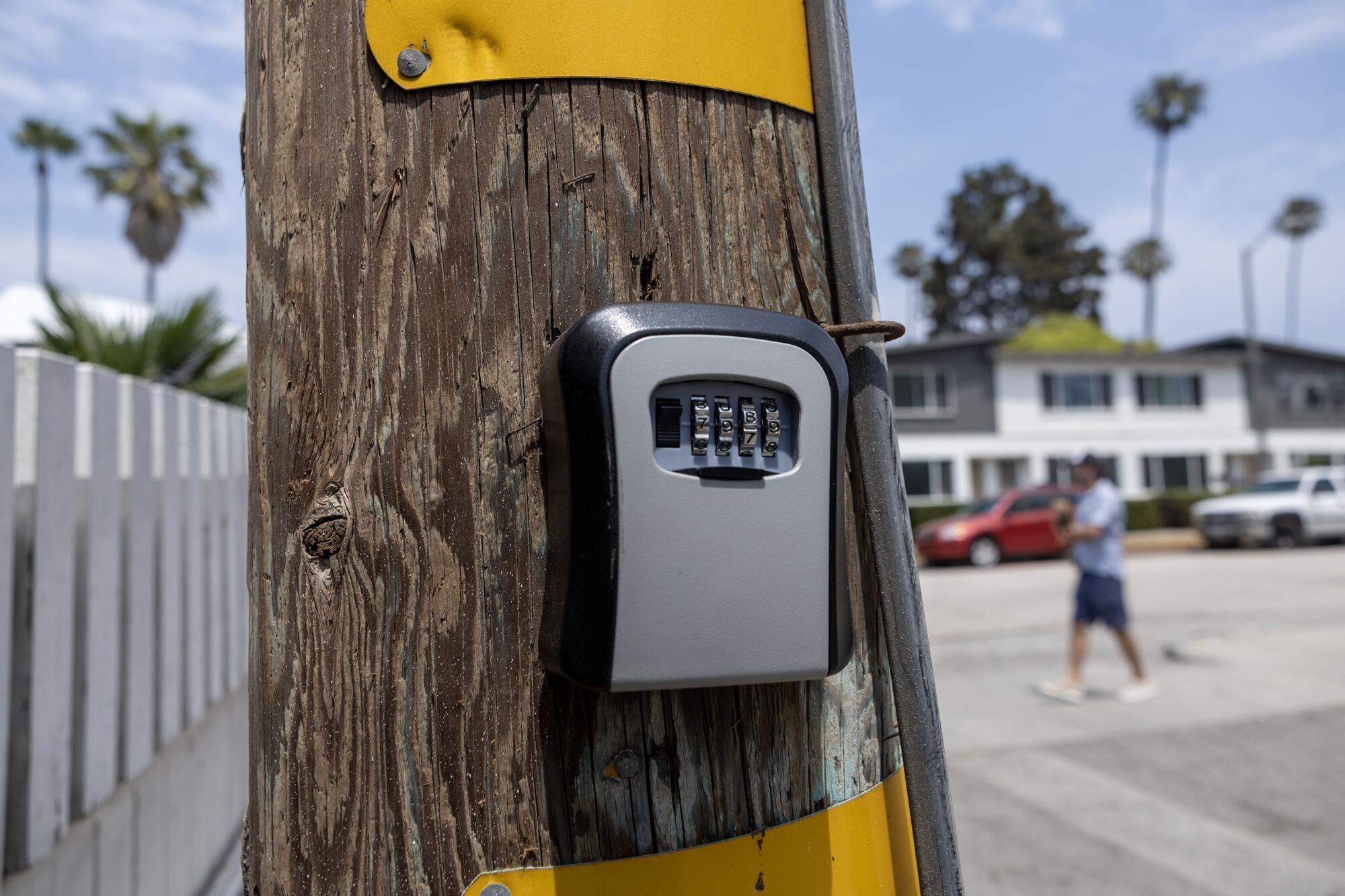
Since October 2020, Yurov and his associates applied for units in Marina Tower under fraudulent names including âNikolay Murovâ and âAnastasiya Dobychinaâ to avoid background checks that couldâve revealed that they had been defendants in eviction proceedings in the past, the lawsuit alleged. After getting approved, they immediately advertised the units as short-term rentals.
The group mainly operated their business through an Airbnb host account called âKyrylo Kutuzov,â which generated more than $4 million for the three business partners, the lawsuit states. They also operated Airbnb accounts under the names âAnastasiaâ and âMaka.â The âKyrylo Kutuzovâ account has been removed from Airbnb as of July 13.
It was a method they had allegedly used before, but it didnât always go according to plan.
In one case, a family booked a rental unit they thought was in Burbank but learned was actually in North Hollywood, according to the complaint. They arrived at the home with their small children to find homeless people sleeping on the lawn, broken locks and unlocked windows. They checked into a hotel instead and fought with Yurov, Medvedeva and Nagi, who refused to refund their fee until the family threatened to get police involved, the complaint says.
Other potential guests raised red flags in comments on Airbnb.
Three days before a woman identified only as Rosa was supposed to check into the unit sheâd rented through Airbnb, âKyryloâ canceled her reservation, forcing her to book a last-minute rental somewhere else, according to a review she wrote on Kyryloâs Airbnb profile in January.
âWe are trying to deter similar bad actors ... and make sure that those housing units are doing what theyâre supposed to be doing, which is provide an affordable roof over the heads of people who need a roof over their heads.â
— L.A. City Atty. Hydee Feldstein Soto
Although Kyrylo told her he needed to cancel because of âpipe issues,â Rosa wrote, she had a friend who lived in the same building and told her no such issues existed. After she confronted Kyrylo, he told her the problem was âonly in the apartmentâ and tried to book her at one of his other properties. Airbnb ended up apologizing and confirmed that Kyrylo was unable to prove that there was an issue in the unit, Rosa said in her review.
âBe careful booking this unreliable host,â she wrote. âYou might be stuck having to book somewhere else last minute. A true inconvenience. Very stressful situation.â
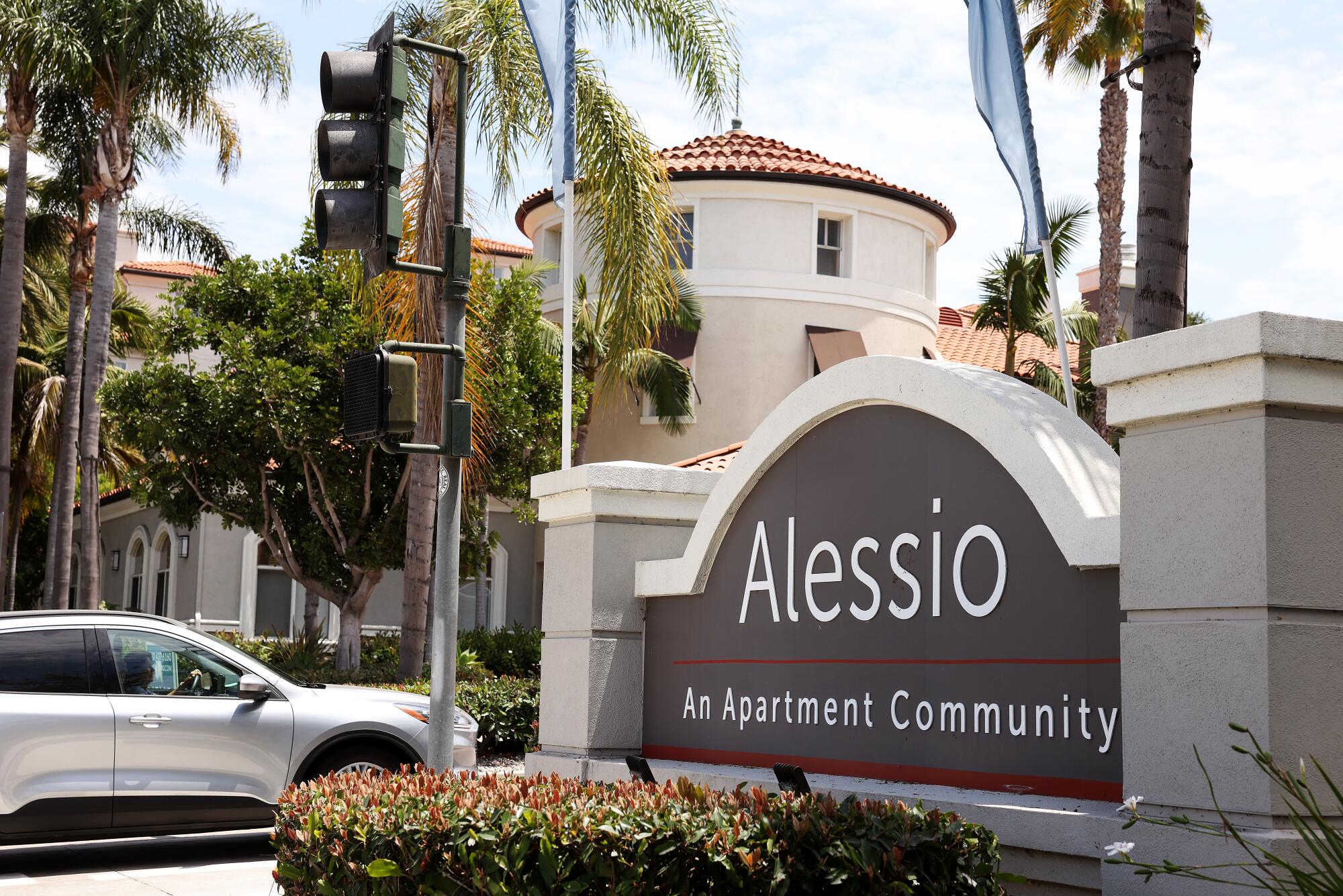
In addition to Marina Tower, Yurov and partners advertised illegal rentals in the Alessio complex near LAX and the Circa apartments near Crypto.com Arena in downtown L.A., the complaint alleges.
Representatives of Marina Tower and Circa apartments didnât respond to requests for comment for this story, and an Alessio leasing agent declined to comment.
Yurov has been served with multiple cease-and-desist letters in the past, the lawsuit says, and at one point he told the city attorneyâs office that he was abandoning the short-term rentals. Instead, the lawsuit alleges, he moved the listings to other Airbnb accounts, including one under the username âLubov.â
According to the lawsuit, none of the properties were the permanent residences of Yurov or his business partners. Instead, they advertised the listings on Airbnb, VRBO and Booking.com without providing valid registration numbers, allegedly violating the Home-Sharing Ordinance for âthousands and thousands of days, across nearly 100 listings.â
Part of the problem, Renick of Better Neighbors said, is that Airbnb and the other hosting platforms donât always confirm the locations or registration numbers of the rentals.
âAirbnb ... will play along in this scheme,â Renick added.
Representatives of Airbnb and Booking.com didnât respond to requests to comment. A VRBO spokesperson said that after learning about the lawsuit, the platform investigated and removed the host account and listings associated with Yurov.
Yurov and his associates also allegedly submitted false claims to Airbnb for payment under its Aircover program, which reimburses hosts for damage caused by guests to property and belongings, the lawsuit states. Between May 2022 and February, they allegedly submitted at least 23 fraudulent invoices from Yurovâs email account to Airbnb for reimbursement.
In Instagram videos, Yurov explained to viewers how he submitted claims through the Aircover program under the âKyryloâ account, according to the complaint. In just Aircover claims alone, he said, heâd usually make between $2,000 to $4,000 a month.
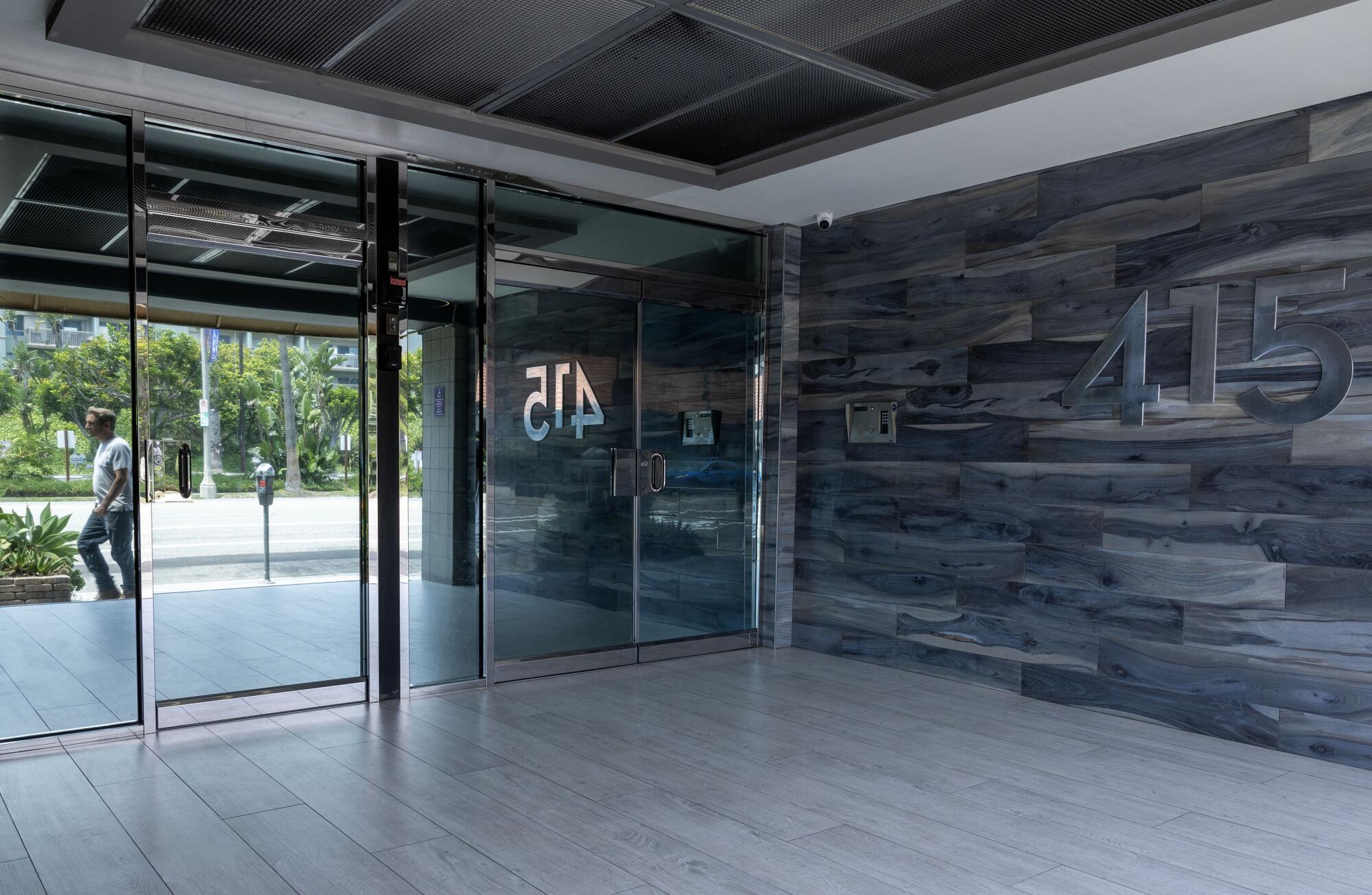
Airbnbâs website says it tries to verify that hosts, co-hosts and guests are who they say they are and that listings are accurate. However, the company acknowledged on its website that the verification doesnât âguarantee that someone is who they claim to be.â
Airbnbâs site also says that the company doesnât perform background checks on all users and warns users not to rely on it to find âall past criminal convictions or sex offender registrations ⌠or other red flags.â Airbnb recently faced backlash after a CNN investigation revealed that the company knew about hosts spying on guests with hidden cameras.
Airbnb is not required to conduct background checks or user verification per its planning agreement with the city, according to a Los Angeles City Planning spokesperson. The department may suspend a hostâs Home-Sharing Ordinance registration number for 30 days or longer after the host receives two citations issued by law enforcement agencies. Additional citations could lead to the host having their registration revoked and being barred from home-sharing for a year.
The litigation, Feldstein Soto said, is part of a larger push to crack down on illegal short-term rentals across L.A. after more than 25,000 rent-stabilized units were lost during Eric Garcettiâs time in office as mayor. Affordable housing units have been built at a much slower pace and higher cost than is needed to address the worsening housing crisis.
âWe are trying to deter similar bad actors ... and make sure that those housing units are doing what theyâre supposed to be doing, which is provide an affordable roof over the heads of people who need a roof over their heads,â she said.
Last year, Feldstein Soto also sued the Nightfall Group, a company offering luxury âparty housesâ for short-term rentals, and its owner, Mokhtar Jabli, alleging that police were called more than 250 times to the rental properties in the Hollywood Hills area.

From the front seat of a Porsche, Yurov filmed a June 23 Instagram post commemorating his 30th birthday.
He confessed in the Instagram caption that he frequently felt left behind by everyone else after watching âthe endless race for opportunities and watching all of these success stories online.â But he would tell himself that heâs at âthe right time and at the right place.â
In the post, Yurov also marked another milestone: gaining another 10,000 followers on his new social media account.
âThank you all for being with me on this journey,â he wrote. âWeâre just taking a slow take off. Its just a beginning.â
Sign up for This Evening's Big Stories
Catch up on the day with the 7 biggest L.A. Times stories in your inbox every weekday evening.
You may occasionally receive promotional content from the Los Angeles Times.
More to Read
Sign up for This Evening's Big Stories
Catch up on the day with the 7 biggest L.A. Times stories in your inbox every weekday evening.
You may occasionally receive promotional content from the Los Angeles Times.











